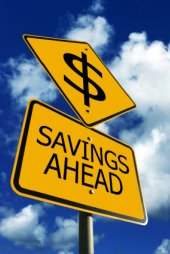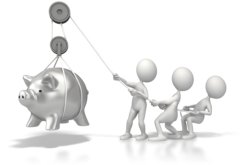5 Essential Elements to Preparing Your Financial Planning Budget

Have you introduced a financial planning budget into your day to day living? If not, there's no time like the present.
A solid financial plan begins with a budget. If all that financial planning procrastinators accomplished was to create and manage a budget, most of their personal finance problems could eventually be resolved.
Still, many people avoid creating a budget, perhaps because it gives them something to worry about before they spend their money and after they spend it.
The bottom-line is that it builds discipline and accountability into their financial lives and some people would rather avoid both.
People who do proper budgeting realize the benefits of gaining control over their finances and the satisfaction of knowing where their money is coming from and where it goes, especially when their excess cash flow grows over time.
And, what most people find is that creating a budget can be liberating and that it is not that difficult.
There are five essential elements to a financial planning budget that anyone can create.
Financial Planning Budget Essentials
Organization
This means getting all of your ducks in a row. Gather your financial documents, bank statements, bills, pay stubs, and anything else that involves either income or expenditures each month.
If you utilize online services for any of these, it helps to create a favorites or bookmarks folder for financial budget and move the website URLs there for quick access.
For paper statements, an accordion file with monthly labels is ideal. The key to organization is that you stay organized.
Budget Goals
Budgeting is not an activity most people just decide to start. Having some specific goals can provide the motivation to start the process and keep it going.
Debt reduction, saving for a big expenditure, starting a long term investment program are all strong motivating factors for starting a budget.
When setting goals, it is important to be specific with regards to dollar amounts and time frames for achieving the goals.
Budget Worksheet
A good budget worksheet can mean the difference between successfully forming the habit of budgeting and a failed attempt.
It needs to be simple, somewhat customizable, accessible and easy to perform calculations.
A good budget worksheet allows you to itemize all monthly budget expenditures and then enter actual expenditures.
Some people prefer a paper worksheet; while others find the using an electronic spreadsheet is more efficient and effective.
There are also some software programs that are easy to use and some even link to your bank and credit card accounts for easy data transfer.

Cash Flow Projection
The whole purpose of budgeting is to be able to control or change your financial course.
You should be able to see how your current budget decisions will affect your cash flow in the future which will also enable you to make small adjustments along the way as opposed to having to make drastic changes if you find yourself suddenly off course.
It is usually much easier to perform cash flow projections when you use an electronic spreadsheet or a software program.
A cash flow projection acts as your progress report and helps you see if you are on track to meeting your budget goals.
Hard Decisions
For most people, their budget is the first opportunity they have to fully understand how their spending habits affect their ability to achieve their financial goals.
Serious budgeting involves identifying those expenditures which may be getting in the way of getting control of your personal finances, and it requires discipline to make some hard decisions to be able to change your course.
Many people are surprised when they see that their daily Starbucks habit and their weekly dining out is costing them over $1500 a year. Budgeting is about making choices and gaining the upper hand on your personal finances.
From Financial Planning Budget to Basic Financial Planning
From Financial Planning Budget to Successful Wealth Approach Home